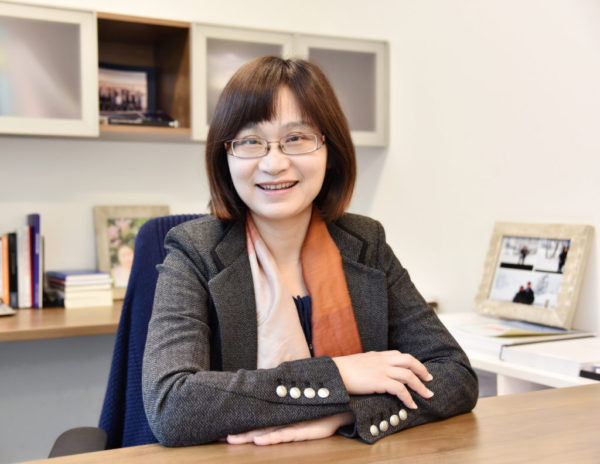The Question of International Roles
- Global Politics
- Global
On May 4, the U.S.-China Economic and Security Review Commission published a document identifying Chinese nationals serving in leadership roles in key international organizations and in other top leadership positions in United Nations — its principal organs, funds and programs, specialized agencies, other entities and bodies and international trade and financial institutions.
The United States has been watching closely, particularly since the latter part of the Trump administration. The increasing number of Chinese representatives in international institutions suggests that the U.S. sees China more as a competitor than a cooperative partner in many global matters. Whether there will be a perception change on the current Biden team about China’s role in international organizations remains to be seen.
Trump pulled the U.S. out of the Iran nuclear deal, the Paris climate agreement, the United Nations Human Rights Council, the Trans-Pacific Partnership and the World Health Organization. He also repeatedly questioned the value of NATO and spoke about withdrawing from it.
As the Trump administration stepped back from many parts of the multilateral order established after World War II, China is no longer a passive side-player within multilateral institutions. Its growing economic might and foreign policy goals drive its increasingly active participation within the multilateral system. China now heads four of the 15 UN specialized agencies — the International Civil Aviation Organization, the International Telecommunication Union, the Food and Agriculture Organization and the UN Industrial Development Organization.
In the U.S. view, China clearly sees international organizations as convenient vehicles for expanding global influence. The U.S. has become more sensitive, particularly as it notices China’s increasing role in these international organizations occurring at a time when Trump has expressed no interest in international organizations and moved to cancel or suspend funding for some of them.
On the first day of his presidency, Biden moved to undo the most damaging aspects of Donald Trump’s legacy and fulfilled promises he made during the campaign, including rejoining the Paris climate accord, recommitting to the World Health Organization and moving to rejoin the UN Human Rights Council.
Though there are voices calling for international cooperation over competition, some Americans point out that the new administration cannot simply paper over the real geopolitical frictions that will persist post-Trump. The U.S. may have difficulty countering China’s growing influence, particularly given the backsliding of U.S. priorities and policies with respect to multilateral institutions.
The document released on May 4 by the U.S.-China Economic and Security Review Commission suggests that the Biden administration may still see China’s increasing presence in international organizations as a challenge to America’s ultimate goal to continue its leadership in international institutions.
China sees its active participation in international organizations as reflecting the two primary goals of its independent foreign policy: furthering domestic economic development through cooperation with the world and promoting peace and stability by cultivating ties with other nations on the basis of equality.
The rise of China’s status is noticeable in the area of UN peacekeeping operations, both in terms of money allocated and the number of contingents sent. The goals of its Belt and Road Initiative are getting a lot of attention throughout UN agencies. The United Nations Children’s Fund praised the initiative’s capacity to “multiply our impact” in fighting child poverty, and the UN high commissioner for refugees applauded the initiative’s emphasis on connectivity.
China is especially active in organizations, committees and subcommittees that set procedures and standards, especially with regard to the most innovative technologies. It is working to turn its growing scientific and technical potential into a real influence in the process of formulating rules in institutions, including in the International Organization for Standardization, the International Electrotechnical Commission, the International Telecommunications Union and the 3rd Generation Partnership Project, or 3GPP. Establishing international standards for technology that are beneficial to Chinese companies has a chance to partially offset the limits imposed by intense competition with the United States.
In the current tense political environment between the two countries, will we see the U.S. and China enter a period of overall competition in international organizations? Or will they seize the opportunity to enhance cooperation for addressing many global issues that the world faces today?
There will be a mixed answer. The U.S. will continue to retain its membership in international organizations relating to the global economy, such as the World Bank and the International Monetary Fund. But the World Health Organization became a battleground since the coronavirus outbreak in 2020, signaling that China-U.S. competition had expanded from security and economics into non-economic international organizations such as public health.
In the future, on one hand, international organizations in the areas of health, international law and human rights are likely to become new arenas for China-U.S. competition. On the other hand, cooperation already happens and will continue at many levels in international organizations, such in the fields of climate change and marine research, particularly in the Arctic and Antarctic regions, among others. Enhancing cooperation in international organizations will promote a model of global governance that works toward the common interests of the two countries and the world.
Nong Hong, PhD, is executive director and senior fellow at the Institute for China-America Studies (US). This article originally appeared on China-US Focus.
Related Terms
You May be Interested In
- Commentary
- Nong Hong





Reflection from the 2024 Arctic Circle Assembly: Charting the Future of Arctic Governance